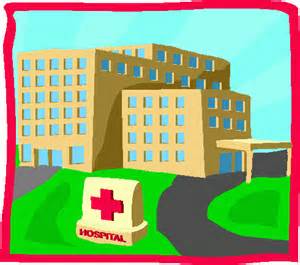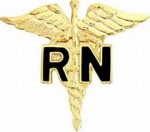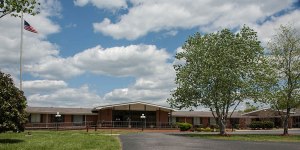 I have noticed that some health care providers reverse their name badges, we can’t know their names or their job responsibilities.. During a 9 month period I stayed at 3 hospitals and two nursing homes, I tried to be responsible about who were the providers of healthcare and assistance. I learned to ask, “Who are you and what do you do here?”. Most badges have an alphabet soup of letters. This what they mean and what we should expect they provide us. Perhaps this will be useful for those of us with elderly parents or a spouse who needs rehab therapy.
I have noticed that some health care providers reverse their name badges, we can’t know their names or their job responsibilities.. During a 9 month period I stayed at 3 hospitals and two nursing homes, I tried to be responsible about who were the providers of healthcare and assistance. I learned to ask, “Who are you and what do you do here?”. Most badges have an alphabet soup of letters. This what they mean and what we should expect they provide us. Perhaps this will be useful for those of us with elderly parents or a spouse who needs rehab therapy.
NP
Most* Nurse practitioners (NP), also called Advanced Practice Nurses (APN) have completed a registered nursing degree as a part of a bachelors degree, plus a masters degree. In addition, many now seek a doctorate level degree.
(*Not all NPs do have these degrees. In some states, NPs were licensed prior to these degree requirements, and were therefore “grandfathered,” meaning, they did not have to complete them.)
An NP may be certified in a specialty area, such as family health, oncology, or pediatrics. Nurse practitioners are clinicians, not unlike a physician who may have his or her own practice. He or she can serve as a patient’s regular healthcare provider, and may diagnose, order tests, develop treatment plans and write prescriptions.
Most NPs work in collaboration with a physician, which is usually required by the state they work in. They are accredited through several organizations, including the American Academy of Nurse Practitioners. Be sure you don’t confuse nurse practitioners with nurses. Their work with patients may be very different.
The nursing home/rehab I stayed at used a NP several days a week with a MD visiting once a week.
RN
 A registered nurse is a nurse who has graduated from a nursing program usually receiving an Associates degree and has passed a national licensing exam to obtain a nursing license An RN’s scope of practice is determined by local legislation governing nurses, and usually regulated by a professional body or council.
A registered nurse is a nurse who has graduated from a nursing program usually receiving an Associates degree and has passed a national licensing exam to obtain a nursing license An RN’s scope of practice is determined by local legislation governing nurses, and usually regulated by a professional body or council.
Registered nurses are employed in a wide variety of professional settings, often specializing in their field of practice. They may be responsible for supervising care delivered by other healthcare workers including enrolled nurses licensed practical nurses, unlicensed assistive personnel, nursing students, and less-experienced RNs.
Registered nurses must usually meet a minimum practice hours requirement and undertake continuing education in order to maintain their registration. Furthermore, there is often a requirement that an RN remain free from serious criminal convictions.
The RN’s at the nursing home/rehab I stayed at mostly gave out the meds and didn’t do much more then that except for the Wound Nurse who help residents with wound care.
LPN
You can often find LPN training programs at technical schools or community colleges, although some might be located at high schools or hospitals. Training generally involves a combination of traditional class work, such as biology and pharmacology, along with supervised clinical instruction. A person can generally become an LPN with two years of training; all U.S state and territorial boards also require passage of the exam.
Often, they provide basic bedside care. Many LPNs measure and record vital signs such as weight, height, temperature, blood pressure, pulse, and respiratory rate. They also prepare and give injections, enemas, catheters, monitor wounds, and give alcohol rubs, massages. To help keep patients comfortable, they assist with bathing, dressing, and personal hygiene, moving in bed, standing, and walking. They might also feed patients who need help eating. Experienced LPNs may supervise nursing assistants and aides, and other LPNs.
As part of their work, LPNs collect samples for testing, perform routine laboratory tests, and record food and fluid intake and output. They clean and monitor medical equipment. Sometimes, they help physicians and registered nurses perform tests and procedures. Some LPNs help to deliver, care for, and feed infants.
LPNs also monitor their patients and report adverse reactions to medications or treatments. LPNs gather information from patients, including their health history and how they are currently feeling. They may use this information to complete insurance forms, pre-authorizations, and referrals, and they share information with registered nurses and doctors to help determine the best course of care for a patient. LPNs often teach family members how to care for a relative or teach patients about good health habits.
The LPN’s at the nursing home/rehab I stayed at also mostly gave out the meds and didn’t do much more then that.
CNA
 Most training programs for CNA’s (Certified Nurse Assistants) do not last more than one year and are offered at a wide variety of institutions, including career schools, community colleges, hospitals, nursing homes & even high schools. Program lengths vary but average one year. Prerequisites for entry are typically a high school diploma or equivalent. After passing the examination, the candidate is added to his or her state’s nurse aide registry and is eligible to be hired on as a Certified Nursing Assistant.
Most training programs for CNA’s (Certified Nurse Assistants) do not last more than one year and are offered at a wide variety of institutions, including career schools, community colleges, hospitals, nursing homes & even high schools. Program lengths vary but average one year. Prerequisites for entry are typically a high school diploma or equivalent. After passing the examination, the candidate is added to his or her state’s nurse aide registry and is eligible to be hired on as a Certified Nursing Assistant.
Certified Nursing Assistants work very closely with their patients. Many times the patient is either elderly or chronically ill; both cases need consistent, long-term care. The usual work environment is either a hospital or a home, either private or health-related. They provide basic medical care and work directly under the supervision of doctors and registered nurses. The tasks listed below make up the majority of what you can expect to be doing on a day-to-day basis.
Working for certified home health or hospice agencies to support and comfort terminally ill patients and their families. Enabling disabled, chronically ill or challenged patients to live in the comfort of their own homes instead of healthcare facilities. Providing light housekeeping, shopping and meal preparation for elderly, infirm and shut-in patients. Helping developmentally or intellectually disabled clients learn self-care skills and providing employment support.
Certified Nursing Assistant Job Duties:
- Provides patients’ personal hygiene by giving bedpans, urinals, baths, backrubs, shampoos, and shaves; assisting with travel to the bathroom; helping with showers and baths.
- Provides for activities of daily living by assisting with serving meals, feeding patients as necessary; ambulating, turning, and positioning patients; providing fresh water and nourishment between meals.
- Provides adjunct care by administering enemas, douches, nonsterile dressings, surgical preps, ice packs, heat treatments, sitz and therapeutic baths; applying restraints.
- Maintains patient stability by checking vital signs and weight; testing urine; recording intake and output information.
- Provides patient comfort by utilizing resources and materials; transporting patients; answering patients’ call lights and requests; reporting observations of the patient to nursing supervisor.
- Documents actions by completing forms, reports, logs, and records.
The CNA’s at the Christian Care Center Rehab/Nursing home were God’s Angels on Earth. They made living tolerable for the elderly, disabled, stroke, and diabetic/other amputees. The CNA’s and UAP’s at the VA Medical Centers in Nashville and Murfreesboro are “lazy clods”
UAP
Unlicensed assistive personnel (UAP) is a class of paraprofessionals who assist individuals with physical disabilities, mental impairments, and other health care needs with their activities of daily living (ADLs) and provide bedside care — including basic nursing procedures — all under the supervision of a registered nurse, licensed practical nurse or other health care professional. They provide care for patients in hospitals, residents of nursing facilities, clients in private homes, and others in need of their services due to effects of old age or disability. UAPs, by definition, do not hold a license or other mandatory professional requirements for practice, though many hold various certifications.
UAP’s do many of CNA tasks.
The facilities and food at West Meade Place Nursing Home were superior to that of the Christian Care Center at 2501 River Road. But….the Physical and Occupational therapists who worked with the patients were not fully licensed but were what are called PTA’s (Physical Therapy Assistant) or OTA’s who finished a program at a Community College while licensed PT’s hold Doctorate degrees from schools like Belmont University.
Certified occupational therapists (OT) typically hold Masters or Doctoral degrees in occupational therapy from an ACOTE accredited institution.
To practice in the United States, occupational therapists must receive a master’s degree and pass a licensing examination to become certified by the National Board for Certification in Occupational Therapy (NBCOT). Occupation Therapy Assistants (OTA) usually hold an Associates degree from a community college.
Almost all inpatient therapy I received was by a PTA or OTA while the PT’s and OT’s held administrative / supervisor positions. I usually saw a licensed PT or OT during an initial evaluation, otherwise they were in an office cubicle or roaming the therapy area.
Here is how I rank the hospitals I stayed at.
- Centennial was the best
- St Thomas was OK
- Veterans Affairs Medical Center (VAMC)-Nashville was a distant third but worst food than the Murfreesboro VAMC.
- Veterans Affairs Medical Center (VAMC)-Murfreesboro was dangerous. I was infected with MRSA and was treated for pneumonia with continuous antibiotic IV’s and respiratory therapy for 7 days in their Acute Care ward. In military parlance, I had dodged a bullet. I was virtually ignored by the caregivers. PT and OT was substandard. I twice fell to the floor, supposedly being assisted by a staff member, the second time my prosthetic hip was shattered in three pieces while the titanium ball joint pressed my sciatic nerve flat for six days until I could receive surgery to replace the broken hip. I was then sent to a nursing home under a VA contract.
 Hard work and great therapy at the nursing/rehab facility by a licensed Physical Therapist and a military trained Occupational Therapist restored my physical condition to the point where I returned home to my lovely and very patient wife.
Hard work and great therapy at the nursing/rehab facility by a licensed Physical Therapist and a military trained Occupational Therapist restored my physical condition to the point where I returned home to my lovely and very patient wife.

